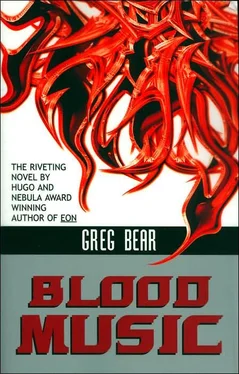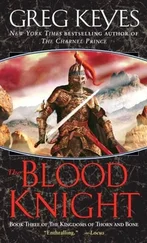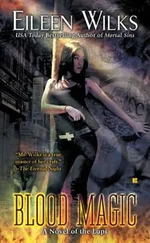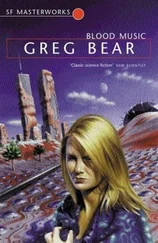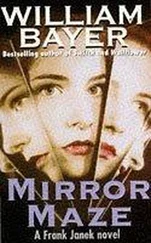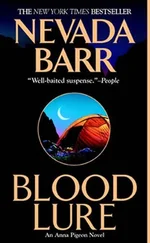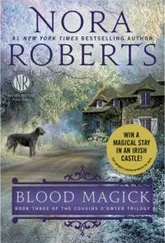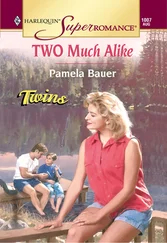Gregory Bear - Blood Music
Здесь есть возможность читать онлайн «Gregory Bear - Blood Music» весь текст электронной книги совершенно бесплатно (целиком полную версию без сокращений). В некоторых случаях можно слушать аудио, скачать через торрент в формате fb2 и присутствует краткое содержание. Город: New York, Год выпуска: 2005, ISBN: 2005, Издательство: ibooks, Incorporated, Жанр: Фантастика и фэнтези, на английском языке. Описание произведения, (предисловие) а так же отзывы посетителей доступны на портале библиотеки ЛибКат.
- Название:Blood Music
- Автор:
- Издательство:ibooks, Incorporated
- Жанр:
- Год:2005
- Город:New York
- ISBN:1596871067
- Рейтинг книги:4 / 5. Голосов: 1
-
Избранное:Добавить в избранное
- Отзывы:
-
Ваша оценка:
- 80
- 1
- 2
- 3
- 4
- 5
Blood Music: краткое содержание, описание и аннотация
Предлагаем к чтению аннотацию, описание, краткое содержание или предисловие (зависит от того, что написал сам автор книги «Blood Music»). Если вы не нашли необходимую информацию о книге — напишите в комментариях, мы постараемся отыскать её.
Blood Music — читать онлайн бесплатно полную книгу (весь текст) целиком
Ниже представлен текст книги, разбитый по страницам. Система сохранения места последней прочитанной страницы, позволяет с удобством читать онлайн бесплатно книгу «Blood Music», без необходимости каждый раз заново искать на чём Вы остановились. Поставьте закладку, и сможете в любой момент перейти на страницу, на которой закончили чтение.
Интервал:
Закладка:
It was time to move on. She wouldn’t be spared for long.
She packed food into boxes and stacked the boxes in the basket. The gas was still on; she cooked herself a fine breakfast with the last of the eggs and bacon, toasted bread over the fire as her mother had once taught her, spread it with the last of the butter and slathered it with jam. She finished four slices and went upstairs to pack a small overnight bag. Travel light, she thought. Heavy winter jacket and clothes, gun, boots. Wool socks from her brothers’ drawers. Gloves. Frontier time, pioneer time.
“I might be the last woman on Earth,” she mused. “I’ll have to be practical.”
The last thing into the cart, waiting at the foot of the stairs on the sidewalk, was the radio. She only played it a few minutes each night, and she had scrounged a boxful of batteries from Mithridates’. It should be useful for some time.
From the radio, she had learned that people were very worried, not just about Brooklyn, but about the entire United States, all the way to the borders, and Mexico and Canada beyond. Short wave news broadcasts from England talked about the silence, the “plague,” about air travelers being quarantined, and submarines and aircraft patrolling up and down the coast. No aircraft had as yet penetrated to the interior of North America, a very distinguished-sounding British commentator said, but secret satellite photographs, it was rumored, showed a nation paralyzed, perhaps dead.
Not me, Suzy thought. Paralyzed meant not moving. “I’ll move. Come look at me with your submarines and planes. I’ll be moving and I’ll be wherever I am.”
It was late afternoon as Suzy pushed the cart along Adams. Fog obscured the distant towers of Manhattan, allowing only pale silhouettes of the World Trade Center to rise above gray and white opacity. She had never seen fog so dense on the river.
Looking back over her shoulder, she saw great kitelike sails of brown and tan loft up in the wind over Cadman Plaza. Williamsburgh Savings Bank was sheathed along its 500-foot height with brown, no white this time, like a skyscraper wrapped for mailing. She turned down Tillary, heading for Flatbush and access to the bridge, when she thought how much she looked like a bag lady.
She had always been afraid of becoming a bag lady. She knew sometimes people with problems like hers couldn’t find places to live, so they lived on the streets.
She wasn’t afraid of that now. Everything was different. And the thought tickled her sense of humor. A bag lady in a city covered with brown paper bags. It was very funny but she was too tired to laugh.
Any kind of company would have been welcome—bag lady, cat, bird. But nothing moved except the brown sheets.
She pushed the cart up Flatbush, stopping to sit on a bus bench and rest, getting up and moving on. She took Kenneth’s heavy jacket from the cart and slipped it over her shoulders; evening was closing and the air was becoming quite chilly. “I’m going to sing now,” she told herself. Her head was full of lots of rhythms and rock beats, but she couldn’t find a tune. Pulling the cart up the steps to the bridge walkway, one step at a time, the cart lurching and the undercarriage scraping, a tune finally popped into her head, and she began humming the Beatles’ “Michelle,” recorded before she was born. “Michelle, ma belle,” was the only part of the lyric she remembered, and she sang that out between pulls and gasps.
Fog enveloped the East River and spilled across the expressway. The bridge rose above the fog, a highway ever the clouds. Alone, Suzy pushed her cart along the middle walkway, hearing the wind and a weird, low humming sound she realized must be the bridge cables vibrating.
With no traffic on the bridge, she heard all kinds of noises she never would have heard before; great metallic moans, low and subdued but very impressive; the distant singing of the river; the deep silence beyond. No horns, no cars, no subway rumbles. No people talking, jostling. She might as well have been in the middle of a wilderness.
“A pioneer,” she reminded herself. Darkness lay everywhere but over New Jersey, where the sun made its final testimony with a ribbon of yellow-green light. The walkway was pitch black. She stopped pushing the cart and huddled next to it, wrapping her coat tighter, then getting up to put on boots and wool socks. For several hours she sat in a stupor beside the cart, one foot wedged against a wheel to keep it from rolling.
Below the bridge, the sound of the river changed. Her neck hair stood on end, though she had no real reason to be spooked. Still, she could feel something going on, something different. Overhead, the stars gleamed still and clear, and the Milky Way blazed unobscured by city lights and dirty air.
She stood and stretched, yawning, feeling scared and lonely and exalted all at once. She climbed up and over the walkway railing, onto the southbound lanes of the bridge, and walked to the edge. Gripping the railing with gloved, cold-numbed fingers, she looked across the East River, toward South Street, then swept her gaze over the no-longer dark to the outlines of the ferry terminals.
It was still a long time to dawn, but wherever the river touched there was light, and wherever the river flowed there was a green and blue brilliance. The water was filled with eyes and pinwheels and ferris wheels and slow, stately burst like fireworks, all speckled against a steady cobalt glow. She might have been looking down on a million cities at nigh twisted and spun around each other.
The river was alive, from shore to shore and past Governors Island, where the Upper Bay became a Milky Way in reverse. The river glowed and moved and every part of it had purpose; Suzy knew this.
She knew that she was like an ant on the street of a big cit now. She was the uncomprehending, the limited, the transient and fragile. The river was even more complex an beautiful than the early evening skyline of Manhattan.
“I’m never going to understand this,” she said. She shook her head and looked up at the dark skyscrapers.
One of them was not completely dark. In the top floors of the south tower of the World Trade Center, a greenish light flickered. “Hey,” she said, marveling more at that light than everything else.
She pushed away from the railing and returned to her cart on the walkway. All very pretty, she told herself, but the important thing was to keep from freezing, and then to move when the dawn was bright enough to see by. She huddle next to the cart.
“I’ll go see what’s in the building,” she said. “Maybe it’s somebody like me, somebody smarter who knows about electricity. Tomorrow morning I’ll go see.”
Asleep or awake, shivering or still, she fancied she could hear something beyond hearing: the sound of the change, the plague and the river and the drifting sheets, like a big church choir with all its members’ mouths wide open, singing silence.
23
Paulsen-Fuchs pulled up a chair in the viewing chamber with a distant scrape of metal and sat on it. Bernard watched him drowsily from the bed. “So early in the morning,” he said.
“It is afternoon. Your time sense is slipping.”
“I’m in a cave, or might as well be. No visitors today?” Paulsen-Fuchs shook his head, but did not volunteer an explanation. “News?”
“The Russians have pulled out of the Geneva U.N. Obviously they see no advantage to a United Nations when they are the sole nuclear superpower on the Earth. But before they left, they tried to get the security council to declare the United States a nation without leadership and hazardous to the rest of the world.”
“What are they aiming for?”
“I believe they are aiming for some consensus on a nuclear strike.”
Читать дальшеИнтервал:
Закладка:
Похожие книги на «Blood Music»
Представляем Вашему вниманию похожие книги на «Blood Music» списком для выбора. Мы отобрали схожую по названию и смыслу литературу в надежде предоставить читателям больше вариантов отыскать новые, интересные, ещё непрочитанные произведения.
Обсуждение, отзывы о книге «Blood Music» и просто собственные мнения читателей. Оставьте ваши комментарии, напишите, что Вы думаете о произведении, его смысле или главных героях. Укажите что конкретно понравилось, а что нет, и почему Вы так считаете.
